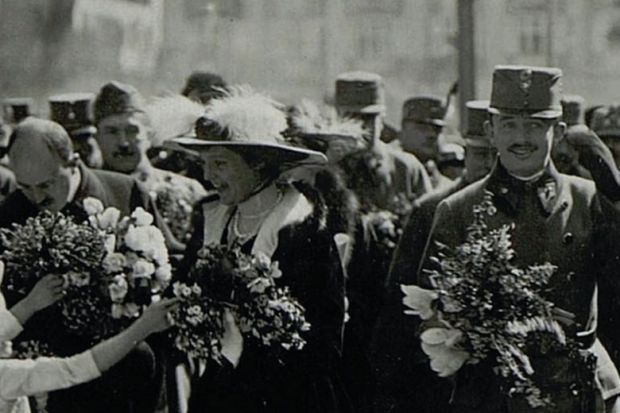Iskra Iveljić
Iskra Iveljić was born in 1959 in Frankfurt on the Main. She attended the secondary school with a classic programme in Zagreb and studied History and English Language and Literature at the Faculty of Humanities and Social Sciences of the University in Zagreb. In 1998 she defended doctoral dissertation The Zagreb Business Elite from 1860 until 1883, at the Faculty of Humanities and Social Sciences, and in 1992 master’s thesis Attempts of the Ban’s Council to Modernize Croatia in 1848, at the same Faculty. The mentor of both theses was professor Mirjana Gross.
I. Iveljić holds Full Professor Tenure of Modern and Contemporary Croatian and World History at the Department of History, Faculty of Humanities and Social Sciences in Zagreb. Previously she worked from 1987 until 1990 at the Archives of Croatia (nowadays the Croatian State Archives) as a junior archivist, and from 1990 until 1993 as assistant at the Institute of Contemporary History. In 1993 she became assistant at the History Department of the Faculty of Humanities and Social Sciences in Zagreb, in 2000 assistant professor, in 2004 associate professor, in 2010 full professor and in 2015 full professor tenured. Since 1993 she was supervisor of 41 graduate, 3 postgraduate and 3 doctoral students, and a member of evaluation committee for 12 postgraduate students at Faculty of Humanities and Social Sciences in Zagreb. At the same institution she teaches various obligatory courses on Croatian 19th century history for undergraduate, graduate and doctoral students, as well as a number of elective courses on gender history, nobility and social and cultural history. She also held lectures for postgraduate students of art history and students of education at the Zagreb university, as well for students of the Institute for East and Southeast European Studies in Regensburg (2009) and the students of the Institute for East European History in Vienna (2014).
In 2014 she was the leader of the project of the University of Zagreb, Educational and Cultural Ties between Vienna, Zagreb and Budapest from the Late 18th until the Mid 20th Century. She also participated in several international projects: Kroaten in Wien 1790-1918 (The Croats in Vienna 1790-1918), led by PhD Neven Budak (University of Zagreb) and PhD Harald Heppner (University of Graz); Geschichte Südosteuropas als europäische Geschichte (History of Southeastern Europe as European History) led by PhD Holm Sundhaussen (The Free University of Berlin) and PhD Jürgen Höpken (University of Leipzig), bilateral Croatian-Slovenian projects The Public Use of History in Slovenia and Croatia – History in Slovene and Croatian Public Opinion (PhD Damir Agičić, University of Zagreb and PhD Marta Verginella, University of Ljubljana) and Croatian-Slovenian Ties in the 19th and the first Half of the 20th Century. The Example of the Pongratz Family (PhD Dragan Damjanović, University of Zagreb and PhD Miha Preinfalk of the Historical Institute Milko Kos of the Slovenian Academy of Sciences and Arts, Ljubljana). She was also a keynote speaker at the Zukunftswerkstatt (led by H. Sundhaussen and PhD Ulf Brunnbauer, University of Regensburg), held in the Goethe-Institut in Zagreb in 2008. I. Iveljić held papers at 18 international conferences in Germany, Austria, Slovenia, Italy, Hungary, Romania, Great Britain and USA. She has many contacts with colleagues especially in Slovenia (Ljubljana, Maribor), Austria (Vienna), Germany (Regensburg, Berlin, Leipzig) Hungary (Budapest, Pecs), Bosnia and Herzegowina (Sarajevo), Serbia (Belgrade), Great Britain (Southampton, London) and USA (New York).
The research of I. Iveljić is focused on the various aspects of modernization, on the middle-class elite and on everyday life at the turn of the century. Recently she has studied the aristocracy in northwestern Croatia in 19th and 20th century (a case study of the Rauch family) as well as Croatian students and Croatian elites in Vienna. Both her studies of middle class and the nobility encompass political, economic and cultural aspects, the gender issues and the relationship towards children and teenagers. In a couple of articles she has also critically analysed the Croatian postcommunist history-writing.
